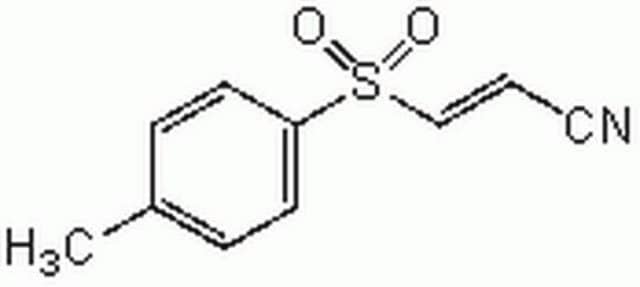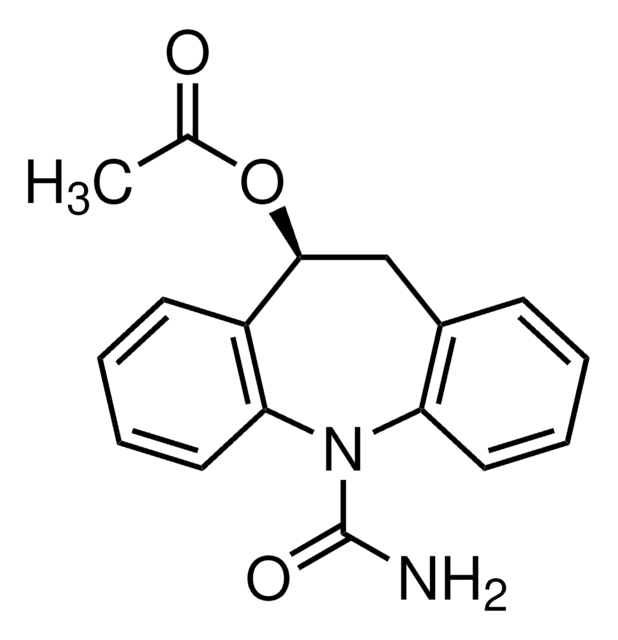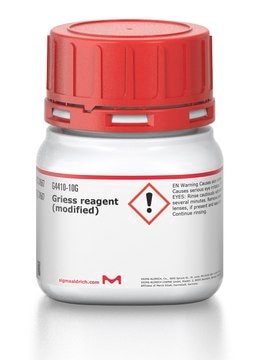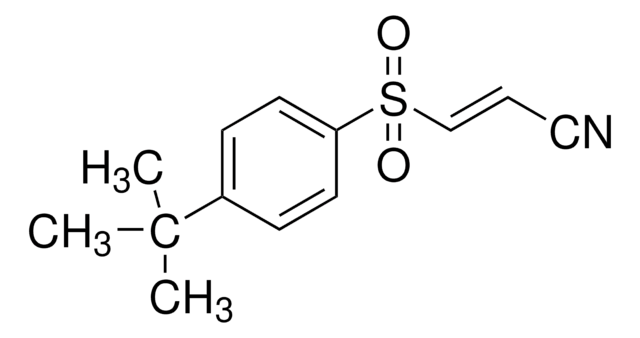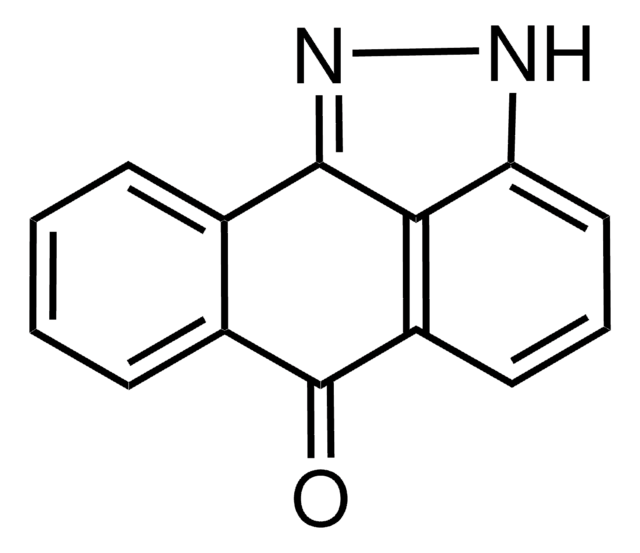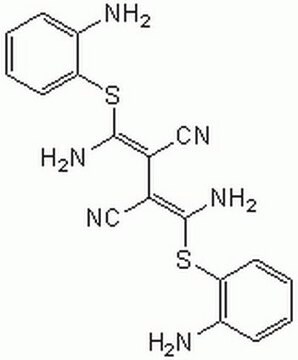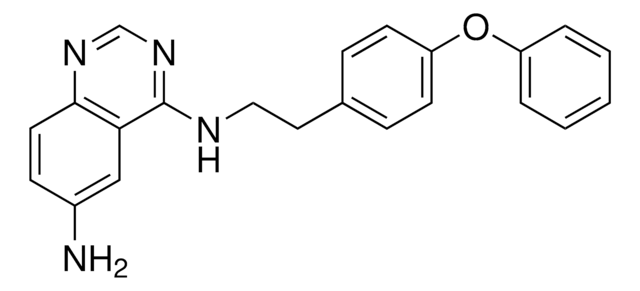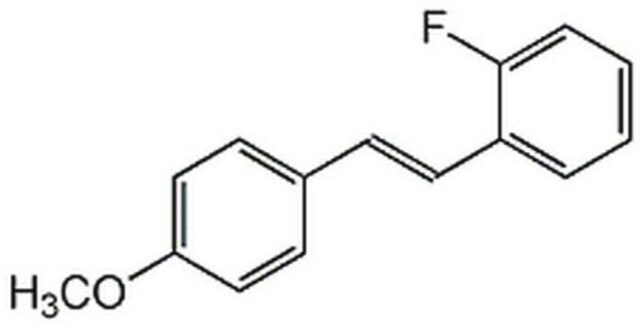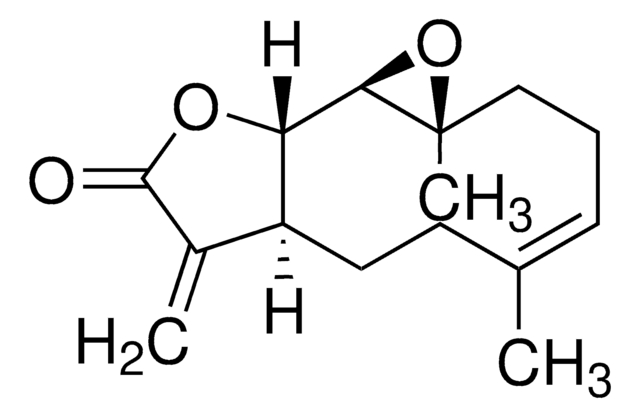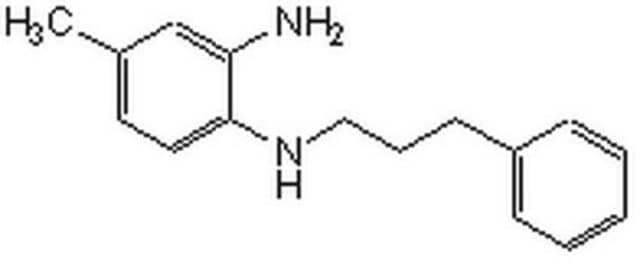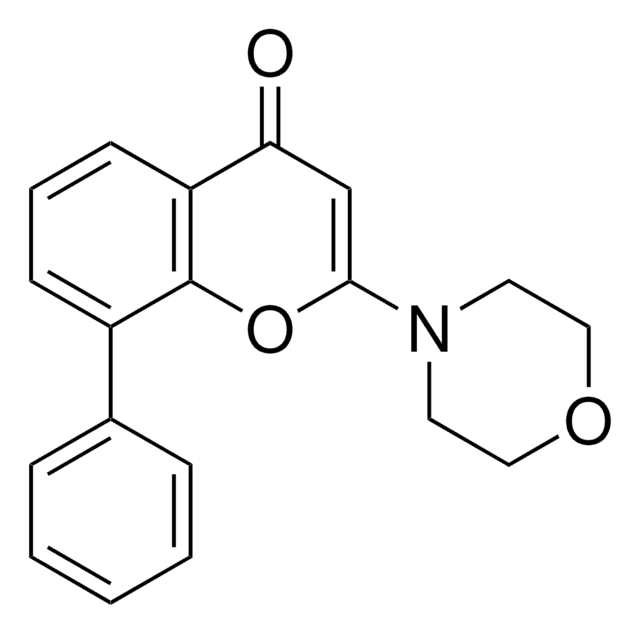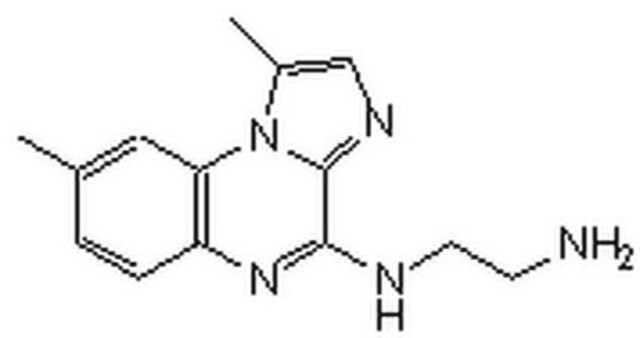B5556
Bay 11-7082
≥98% (HPLC), powder, NF-kB/TNF-α inhibitor
Synonym(s):
(E)-3-(4-Methylphenylsulfonyl)-2-propenenitrile
About This Item
Recommended Products
product name
Bay 11-7082, ≥98% (HPLC), powder
Quality Level
Assay
≥98% (HPLC)
form
powder
color
white
solubility
DMSO: >20 mg/mL
H2O: insoluble
SMILES string
Cc1ccc(cc1)S(=O)(=O)\C=C\C#N
InChI
1S/C10H9NO2S/c1-9-3-5-10(6-4-9)14(12,13)8-2-7-11/h2-6,8H,1H3/b8-2+
InChI key
DOEWDSDBFRHVAP-KRXBUXKQSA-N
Application
- a nuclear factor-kappa B (NF-kB) inhibitor to verify the action of the NF-kB signaling pathway in the production of interleukin (IL)-8
- a nuclear factor-kappa B (NF-kB) inhibitor to study the role of NF-kB activation in Mycoplasma hyorhinis -induced epithelial-mesenchymal transition (EMT) and cell migration
- a nod-like receptor family pyrin domain containing 3 (NLRP3) selective inhibitor to examine its effects on liver inflammation in mice after hematopoietic stem cell transplantation
Biochem/physiol Actions
Features and Benefits
Storage Class Code
11 - Combustible Solids
WGK
WGK 3
Flash Point(F)
Not applicable
Flash Point(C)
Not applicable
Personal Protective Equipment
Regulatory Listings
Regulatory Listings are mainly provided for chemical products. Only limited information can be provided here for non-chemical products. No entry means none of the components are listed. It is the user’s obligation to ensure the safe and legal use of the product.
PDSCL
Deleterious substance
JAN Code
B5556-10MG:4548173189154
B5556-BULK:
B5556-VAR:
B5556-IP:
Certificates of Analysis (COA)
Search for Certificates of Analysis (COA) by entering the products Lot/Batch Number. Lot and Batch Numbers can be found on a product’s label following the words ‘Lot’ or ‘Batch’.
Already Own This Product?
Find documentation for the products that you have recently purchased in the Document Library.
Customers Also Viewed
Articles
We offer a variety of small molecule research tools, such as transcription factor modulators, inhibitors of chromatin modifying enzymes, and agonists/antagonists for target identification and validation in gene regulation research; a selection of these research tools is shown below.
Our team of scientists has experience in all areas of research including Life Science, Material Science, Chemical Synthesis, Chromatography, Analytical and many others.
Contact Technical Service